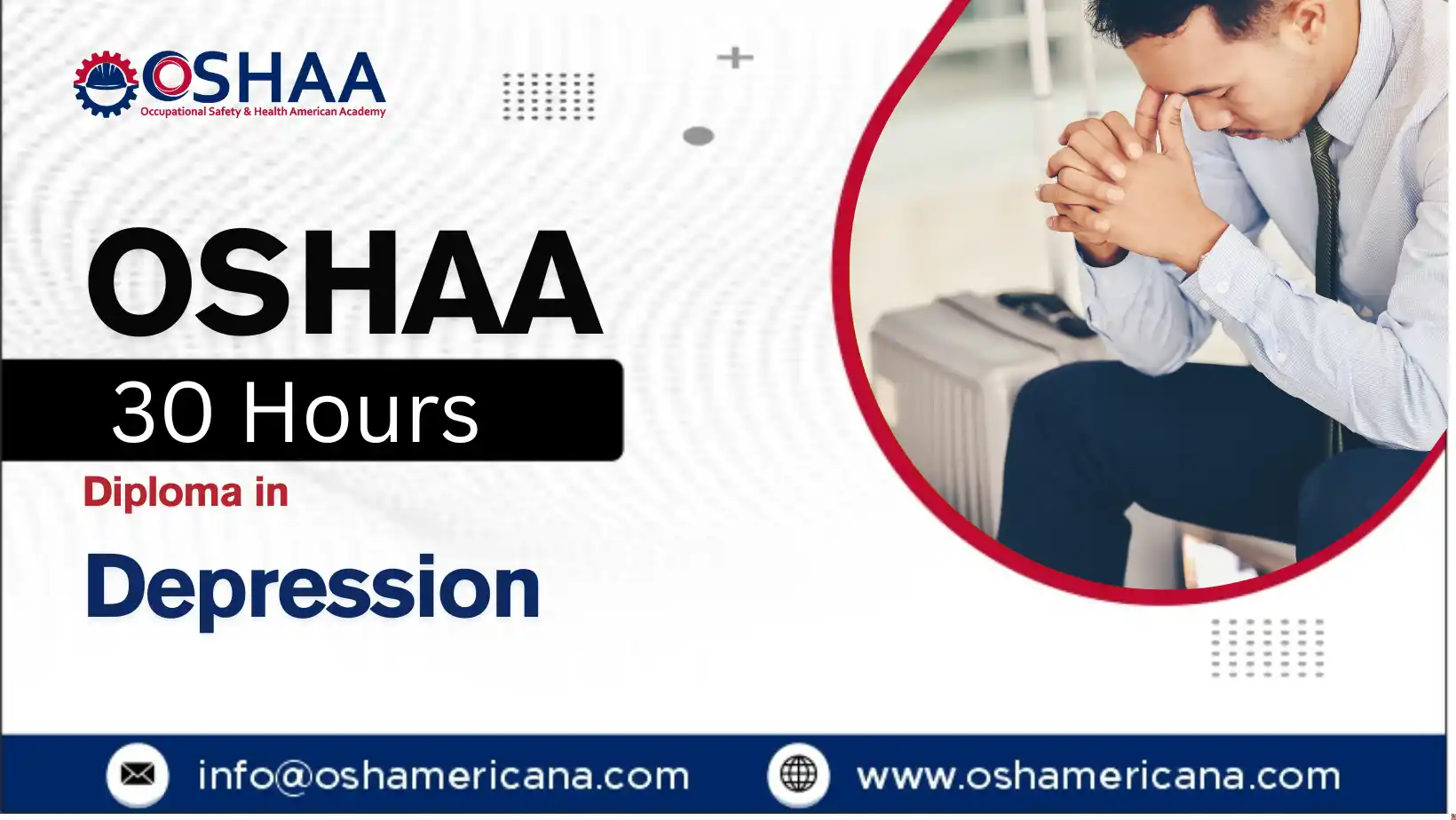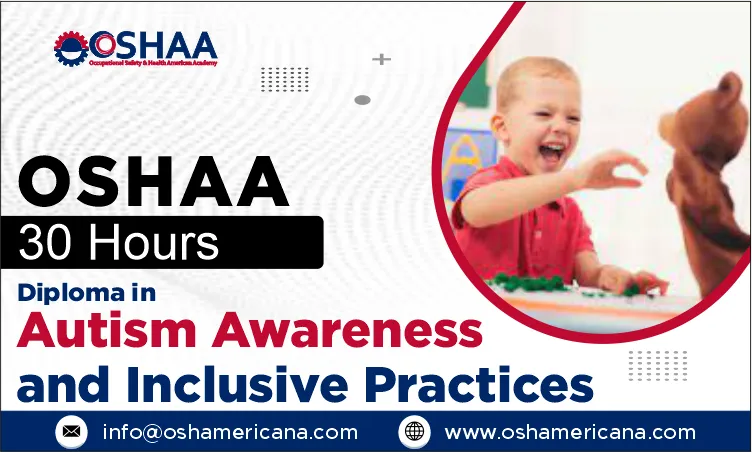The OSHAA 30-Hours Professional Diploma in Depression is a specialised educational programme designed to equip participants with the essential knowledge and practical skills required to understand, recognise, and respond to depression across various settings. With mental health awareness growing globally, this course addresses the urgent need for informed and empathetic approaches to supporting individuals affected by depressive disorders.
This diploma offers a structured and evidence-based exploration of depression, including its clinical features, underlying causes, risk factors, and impact on daily life. Participants will engage with topics such as mood regulation, diagnostic criteria, treatment options, and psychosocial interventions. The course also places emphasis on the emotional, behavioural, and cognitive aspects of depression, helping participants to identify the signs and symptoms with confidence and sensitivity.
Spanning 30 hours of guided learning, the programme blends theoretical foundations with real-world applications, making it suitable for those seeking to deepen their professional knowledge or enhance their ability to provide support in personal or community contexts.
Participants who complete the OSHAA diploma can progress to further training in areas such as cognitive behavioural therapy, trauma-informed care, suicide prevention, or broader mental health and wellbeing studies. The qualification also enhances readiness for roles in counselling services, primary care, non-profits, and public health initiatives.
The OSHAA 30-Hours Professional Diploma in Depression provides participants with a well-rounded, compassionate, and clinically informed foundation to understand one of the most common yet complex mental health challenges of our time. By empowering participants with knowledge, practical skills, and confidence, this diploma plays a vital role in promoting better mental health awareness and support across communities.
OSHAA 30-Hours Professional Diploma in Depression
Study Units
Learning Outcomes
Understanding Depression: Definitions, Myths, and Facts (3 hours)
- Define depression in clinical and psychological contexts
- Distinguish between common myths and evidence-based facts about depression
- Understand the difference between temporary low mood and clinical depression
- Recognise the importance of accurate information in reducing stigma
Types and Classifications of Depressive Disorders (3 hours)
- Identify the major types of depressive disorders, including major depressive disorder, dysthymia, and seasonal affective disorder
- Understand diagnostic classifications such as those in the DSM-5 and ICD-11
- Compare the symptoms, severity, and duration associated with different types of depression
- Recognise how subtypes of depression can affect treatment planning
Biological, Psychological, and Social Causes of Depression (4 hours)
- Explore biological factors such as genetics, brain chemistry, and hormonal imbalances
- Understand psychological contributors including trauma, negative thinking patterns, and personality traits
- Identify social determinants such as isolation, poverty, and life stressors
- Examine how these factors may interact in the development of depression
Signs, Symptoms, and Diagnostic Criteria (6 hours)
- Recognise the emotional, cognitive, behavioural, and physical symptoms of depression
- Understand how symptoms present differently across individuals
- Learn the diagnostic criteria used by mental health professionals
- Assess the impact of unrecognised or misdiagnosed depression on overall wellbeing
- Identify red flags for severe or treatment-resistant depression
- Explore screening tools used in clinical and non-clinical settings
Depression Across the Lifespan: Children, Adults, and Older People (3 hours)
- Understand how depression presents at different stages of life
- Identify age-specific risk factors and challenges in diagnosis
- Explore the emotional and social effects of depression on different age groups
- Learn how support strategies should be tailored across the lifespan
Evidence-Based Treatment Approaches: Therapy and Medication (6 hours)
- Explore psychological therapies such as CBT, interpersonal therapy, and mindfulness-based approaches
- Understand the role of antidepressant medications and how they work
- Evaluate the benefits and limitations of combined treatment methods
- Examine factors influencing treatment choice and patient response
- Discuss relapse prevention and long-term management strategies
- Identify the role of professional referral pathways and mental health services
Suicide Risk, Self-Harm, and Crisis Intervention (3 hours)
- Understand the link between depression and suicidal thoughts or behaviours
- Recognise warning signs and behavioural indicators of risk
- Learn safe and appropriate responses to individuals in crisis
- Understand safeguarding responsibilities and referral procedures
- Gain awareness of crisis intervention resources and support services
The Role of Lifestyle and Holistic Interventions (2 hours)
- Explore how sleep, diet, and physical activity influence mental health
- Understand the role of stress management and social connection in emotional resilience
- Evaluate the use of complementary therapies such as meditation, yoga, and art therapy
- Identify practical strategies for lifestyle adjustments to support recovery
The OSHAA 30-Hours Professional Diploma in Depression provides participants with a well-rounded and practical understanding of one of the most widespread mental health conditions affecting individuals worldwide. The course offers a variety of professional and personal benefits, equipping participants with the tools to support themselves and others in managing and addressing depression.
- Gain a clear and evidence-based understanding of depression, its causes, and its impact on wellbeing
- Learn to identify early signs and symptoms, enabling timely and appropriate support
- Build confidence in discussing mental health issues with empathy and sensitivity
- Acquire skills to respond effectively to crisis situations involving suicide risk or self-harm
- Explore a wide range of treatment options including psychological therapies, medication, and lifestyle strategies
- Strengthen communication and support techniques that promote recovery and resilience
- Enhance professional competence for roles in healthcare, education, social work, and community services
- Increase awareness of mental health across different age groups and life stages
- Obtain a recognised qualification that supports ongoing professional development
- Contribute positively to reducing stigma and promoting inclusive, informed mental health awareness in society
The OSHAA 30-Hours Professional Diploma in Depression is designed for participants seeking to understand depression in a structured, professional, and practical manner. It is ideal for those involved in supporting others or interested in enhancing their knowledge of mental health from both a personal and professional perspective.
- Healthcare professionals aiming to expand their mental health knowledge and practice
- Counsellors, therapists, and wellbeing practitioners supporting individuals with emotional difficulties
- Teachers, school staff, and pastoral care teams concerned with student mental health and early intervention
- Social workers, support workers, and community care professionals working with vulnerable populations
- Human resource personnel and workplace wellbeing coordinators promoting mental health in professional environments
- Volunteers and individuals involved in community outreach and peer support
- Family members or carers supporting someone experiencing depression
- Participants with a personal interest in mental health, emotional resilience, and self-care strategies
This course requires no previous mental health training and is accessible to all participants who are committed to learning, supporting others, and promoting better mental wellbeing across different settings.







